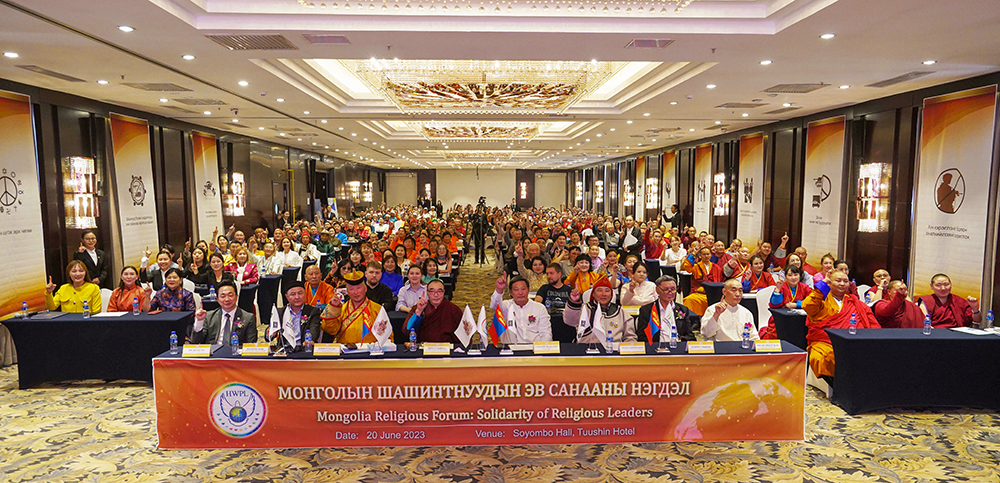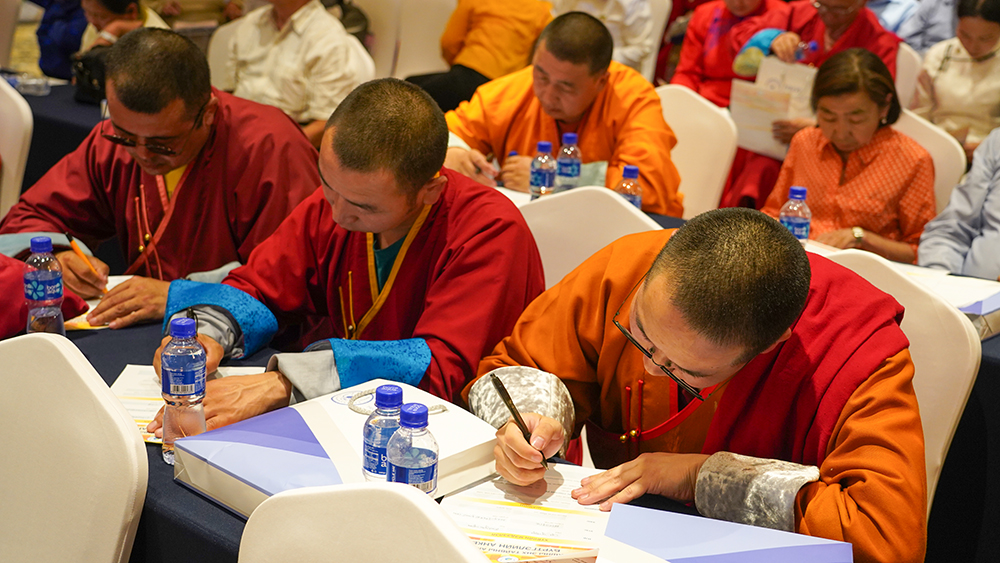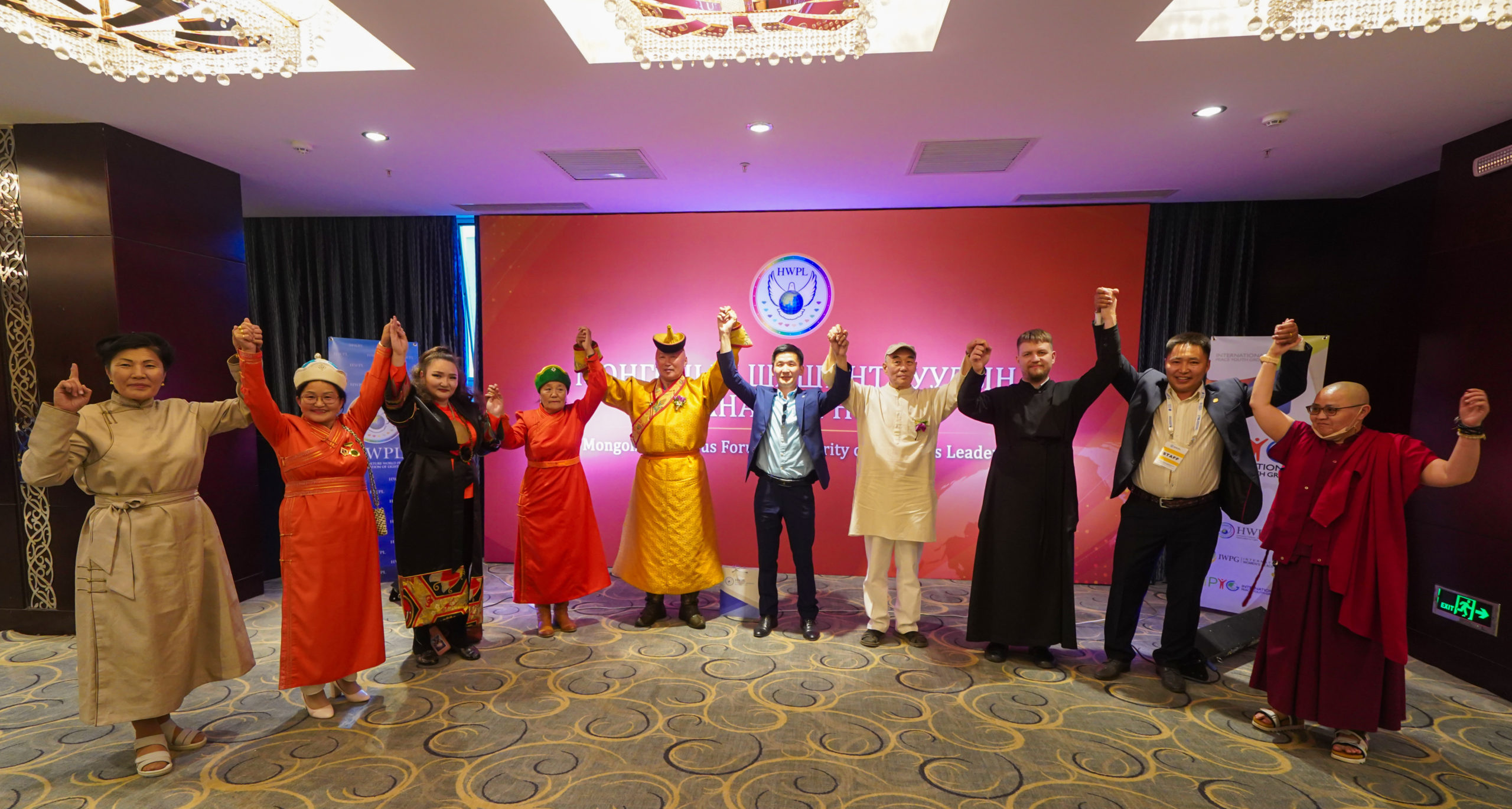Mongolia Religious Forum: Solidarity of Religious Leaders

On June 20, the Mongolian Religious Forum, co-hosted by HWPL and Sain Nomuun Monastery, was held at the Best Western Premier Tuushin Hotel in Ulaanbaatar under the theme of “Solidarity of Religious Leaders.”
This forum was attended by about 400 religious leaders, including Nergui Sainbuyan, Great Monk of Sain Nomuun Monastery; Suhkbat Shagdarsuren, Chairman of the Centre of Mongolian Shamanism; Bavuu Bayarsaikhan, Veda Culture Researcher of Krishna Mandir Hindu Temple; and B. Ochir, President of Eternal Heaven United Committee. Congratulatory letters were also given from H.H. Tep Vong, the Great Patriarch of Cambodia.
Mongolia is a country where religious freedom is guaranteed. More than 50% of the population is Buddhist, and the country houses various other religions such as Christianity, Hinduism, Islam, and Bahaism. One of the core goals of Mongolia’s long-term development policy, ‘Vision 2050’ includes the “attainment of shared national values” to achieve a high level of social awareness through research on the value of religion.

HWPL planned the event in collaboration with Sain Nomuun Monastery. The two goals of the event are to first promote inter-religious harmony and understanding in terms of peaceful values, and second, to improve the level of social awareness of the people and cultivating peaceful national values in its citizens.
In a welcoming speech, Great Monk Nergui Sainbuyan of Sain Nomuun Monastery said, “Mongolia has historically been a country that recognizes religious diversity and customs, harmonizes, and communicates with each other. We are pleased to hold this forum with HWPL, which inherits this proud culture and conducts religious peace activities.”
“I am very interested in a dialogue based on scriptures. Considering the basic scriptures and the original scriptures between religions, there is actually not much difference between religions,” said Bavuu Bayarsaikhan, Veda Culture Researcher of Krishna Mandir Hindu Temple, who has been attending HWPL’s World Alliance of Religions’ Peace Office in Mongolia.

Sukhbat Shagdarjav, a researcher and scientist of Nomad & shaman culture, said, “Many religions coexist in Mongolia. So, people have a right to religious tolerance and reverence of their respective religions.” Batiirbek, the Chairman of the Muslim Religious Union of Mongolia, delivered his impression of the event, saying, “We need a mutual understanding between religions and action to keep it. This is a very timely event.”
Shin Sun-ah, the head of HWPL’s Global 9 Branch, said in a closing speech, “It is time to restore and re-spread Mongolian national identity based on religious respect and tolerance pursued by Genghis Khan through the religious leaders gathered here.”
After this, the HWPL Religious Peace Academy (RPA) was introduced. The RPA aims to learn about various religious scriptures around the world and promote mutual understanding between religions and peace. There were 251 religious leaders who applied for classes after empathizing with the purpose of the Religious Peace Academy.













